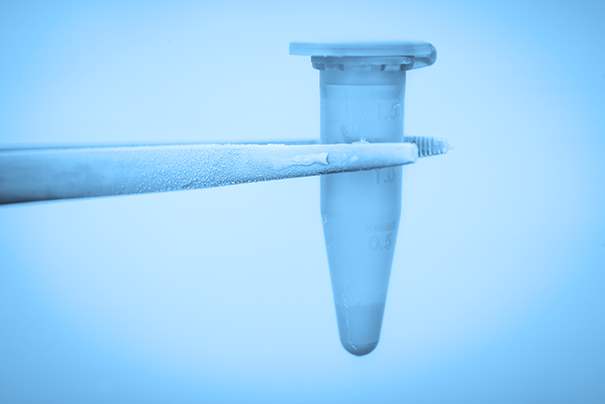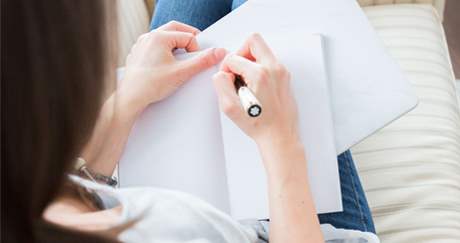With ‘Freeze and Share’, we provide you the chance to freeze your eggs for future use whilst helping another woman to have a baby using donor eggs.
By choosing ‘Freeze and Share’ you will keep half the eggs collected and store mature eggs suitable for your future treatment, while donating the other half to someone who needs them. Your egg freezing cycle is free of charge, and you pay £750 towards screening tests and medication. You will need to pay the full price for your Initial Consultation and Scan, but if you complete an egg sharing cycle then you will receive a refund for the cost of your baseline scan, which is half of the cost of your Initial Consultation and Scan. Outline costing information is given below and full information will be provided to you before choosing to go ahead.
‘Freeze and Share’ gives you the chance to help another woman or couple and to have treatment at a reduced cost.
What is Freeze and Share?
Who is it for?
- women aged between 18 and 35
- women in good health with a BMI between 18 and 30
- those assessed as having good ovarian reserve
- those with a clear medical history and no genetic or hereditary disorders (such as Type 1 Diabetes)
- non-smokers (for at least last 3 months)
Why consider egg freezing?
Women’s fertility begins to decline as they reach their mid-thirties when their eggs naturally begin to decline in quality and quantity.
When you freeze your eggs, you can improve your chances of conceiving at a later date by storing eggs from a younger age, when they are healthier and higher in quantity. These stored eggs can be thawed later and used in treatment, with the success rates depending on your individual circumstances.
For many women, this is an empowering decision and one that puts them in control of their fertility at a time of their life when circumstances may not be right to start a family.
Why choose ‘Freeze and Share’?
Donor eggs can often be the only hope for many women hoping to conceive, and unfortunately there is a huge shortage of donor eggs in the UK. For women who have a low egg reserve in their ovaries, those who have experienced menopause, or been made infertile after cancer treatment, egg donation can often be their only hope of having a family. By sharing your eggs, you’ll become part of a very special group of women who are transforming the lives of those suffering with fertility problems.
Our team have many years of expertise in egg freezing treatment. In recent years, the development of new vitrification ‘Fast Freezing technology’ for egg freezing has made the treatment more successful, with potential survival rates of over 80% for frozen eggs. Although there is no guarantee that freezing eggs will result in a pregnancy, the process can greatly increase your chances of success in later life.
Is ‘Freeze and Share’ right for you?
Our Freeze and Share treatment is open to all women who meet the legal criteria for egg donation. To donate you’ll need to be:
(**Clinical criteria applies and will be reviewed during your initial consultation)
Freeze and Share - £750*
You will receive a full egg freezing cycle free of charge, and you pay £750 towards medication and donor screening profile. The package includes:
- Treatment consultation
- Screening tests (Hepatitis B, Hepatitis C & HIV)
Monitoring scans & blood tests (Oestradiol & Luteinizing Hormone)
- Ovarian stimulation and trigger medication
- Counselling (elective)
- Expert clinical advice
- Egg collection & sedation
- Follow up consultation
- Egg freezing by vitrification (fast Freezing technology)
- 1 year storage
Our usual fee for egg freezing treatment is between £3,940 - £3,995 per treatment cycle. With ‘Freeze and Share’ you pay £750 towards medication and donor screening profile, plus £200 - £410 for your virtual consultation with us, which includes:
- Consultation with a highly-experienced consultant
- Basic health checks
- Advanced ultrasound scan
- Review of results and a full picture of your fertility health
After the first year’s egg storage covered in your package, subsequent years are charged at £385 per year. Other treatment costs would apply in the future when you look to utilise frozen eggs. See our price list and terms and conditions for further details.

In terms of your fertility health, you’ll need to have both ovaries intact, with good egg reserve. Our screening will include a blood test to check your hormone levels and screen for any conditions that might prevent you sharing your eggs. The assessment will give you a detailed picture of your fertility health.
When you are thinking about donating eggs there is a lot to consider, including the fact that children born of donor eggs have the right to identifying information about their donors once they reach the age of 18.
We want you to be sure donating is the right decision for you. We offer every potential donor the opportunity to speak to an independent counsellor so you can be sure that you are comfortable with donation. You will also be provided with a copy of the agreement with us, setting out all the terms of the arrangement: this will need to be signed by you before treatment commences. We will go through the agreement with you to ensure you understand it and to give you an opportunity to ask any questions.
Egg freezing and donation, step by step
An egg freezing cycle involves a handful of visits to our clinic and a few days of medication.
Egg vitrification is the latest technique for fast freezing gametes. Women take hormone medication for a few days to mature the eggs before they are collected in a short theatre procedure. To achieve the best results in terms of quality and quantity of eggs, it is usually recommended that you freeze eggs before you reach the age of 35. If you are considering freezing your eggs it's important you make an informed decision after discussing the safety, efficacy and cost of egg freezing. We also offer counselling to all women should you need any extra support.




We appreciate the decision to share your eggs is a big one, and you’ll have the chance to speak to a specialist fertility counsellor to make sure you understand what donation means for you and your family. Our team will be with you at every step to answer any questions you have.
After the procedure, we will let you know how many eggs have been collected. Half of the eggs will be kept for you (the donor).The mature eggs suitable for freezing are then stored for future use when you’re ready to start a family. The remaining half are donated to a matched recipient. If there’s an odd number then the extra egg will be stored for you.

What happens after I share my eggs?
The eggs you have shared will be stored before they are matched with up to a recipient. Your generous gift has the potential to transform the life of someone who would otherwise never have the chance to conceive.
After your donation, you can choose to write a pen picture with a short description of yourself and a goodwill message for the recipient of your eggs. The women who receive your eggs will receive basic non-identifying information about you to help the matching process. By law, children born of donor eggs or sperm have the right to information about their donor when they reach adulthood.
Do you have more questions about egg sharing?
We suggest that a woman may want to consider 2-3 cycles to give them the best chance of freezing a good number of eggs. We limit patients to a maximum of 3 freeze cycles.
To proceed with a freeze and share cycle of treatment, a minimum of 8 eggs can be collected. If too few eggs are collected for use in an egg sharing agreement, you will be given the option of using or storing all the eggs for your own treatment, at a pre-agreed discounted rate. All of the details in this situation will be explained to you by your donation specialist before treatment starts so that you have all the facts before moving forward with treatment.
No. The recipients of your eggs are the legal parents of any children born, and you have no financial or legal responsibility.
By law in the UK, children born as a result of donation have the right to specific information about the donor involved. It is the choice of the child’s parents whether or not to tell them they were conceived with a donor egg. If parents decide to pass on this information:
- at 16, the child has the right to know the personal characteristics, ethnicity and age of their donor
- when they turn 18, they can find out the name, date of birth, personal characteristics, ethnicity and last known address of their donor
The women who receive your eggs won’t have any information that could identify you personally. Many women waiting for donor eggs want to match with a donor who has similar physical characteristics to them so we do provide basic information about you. This includes: your height, weight, eye and hair colour, your age and country of birth, your ethnicity, your medical history and whether you’re married and have children. Many donors also write a pen picture, which is where you can give a little bit more detail about your personality and interests, as well as your reasons for donating, and a goodwill message.
Yes, you’re entitled to know how many babies are born, their year of birth and whether they are boys or girls. You won’t be told anything that could identify them.







